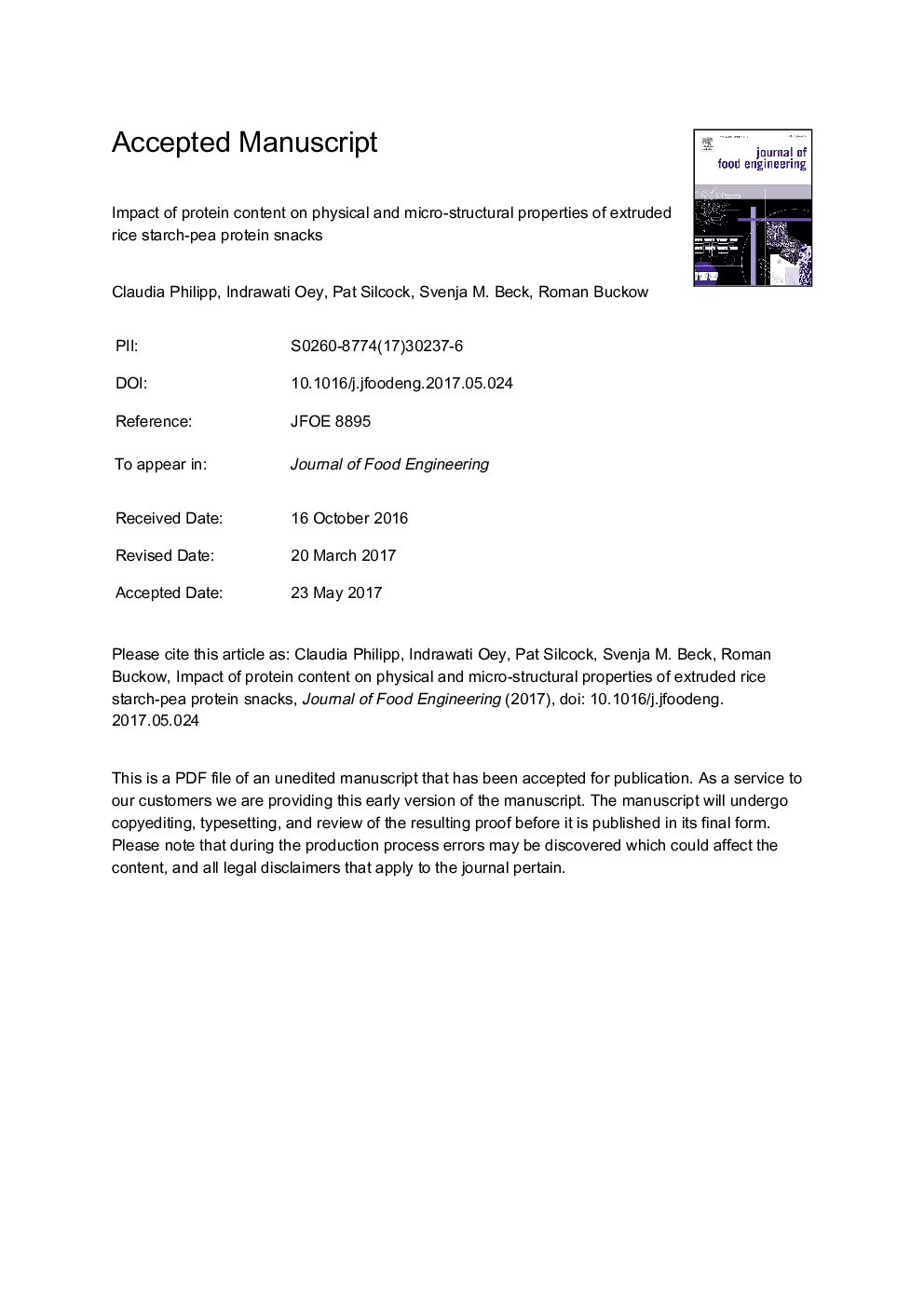| Article ID | Journal | Published Year | Pages | File Type |
|---|---|---|---|---|
| 4908809 | Journal of Food Engineering | 2017 | 35 Pages |
Abstract
The physical and microstructural properties of pea protein-fortified, expanded snacks were examined after extrusion at various moisture contents, temperatures, screw speeds and pea protein isolate (PPI) contents of up to 50% (w/w). The highest expansion and, thus, the lowest bulk density and hardness were recorded at a PPI content of 10% (w/w). An increase of extruder screw speed from 400 to 600 rpm resulted in enhanced expansion of extrudates, while increasing die temperature (from 130 to 150 °C) or moisture content (from 23 to 26%) did not significantly change expansion of different extruded blends. X-ray micro-computed tomography images indicated internal structural differences between extruded blends. Most prominent was the non-uniform structure of extrudates with a PPI content of 30% (w/w). This can be attributed to the decreased glass transition temperature as result of increasing PPI content resulting in delayed material solidification after exiting the extruder die. Extrudates with a PPI content of 50% (w/w) showed poor expansion and were significantly (p < 0.05) harder than extrudates with lower PPI contents.
Keywords
Related Topics
Physical Sciences and Engineering
Chemical Engineering
Chemical Engineering (General)
Authors
Claudia Philipp, Indrawati Oey, Pat Silcock, Svenja M. Beck, Roman Buckow,
